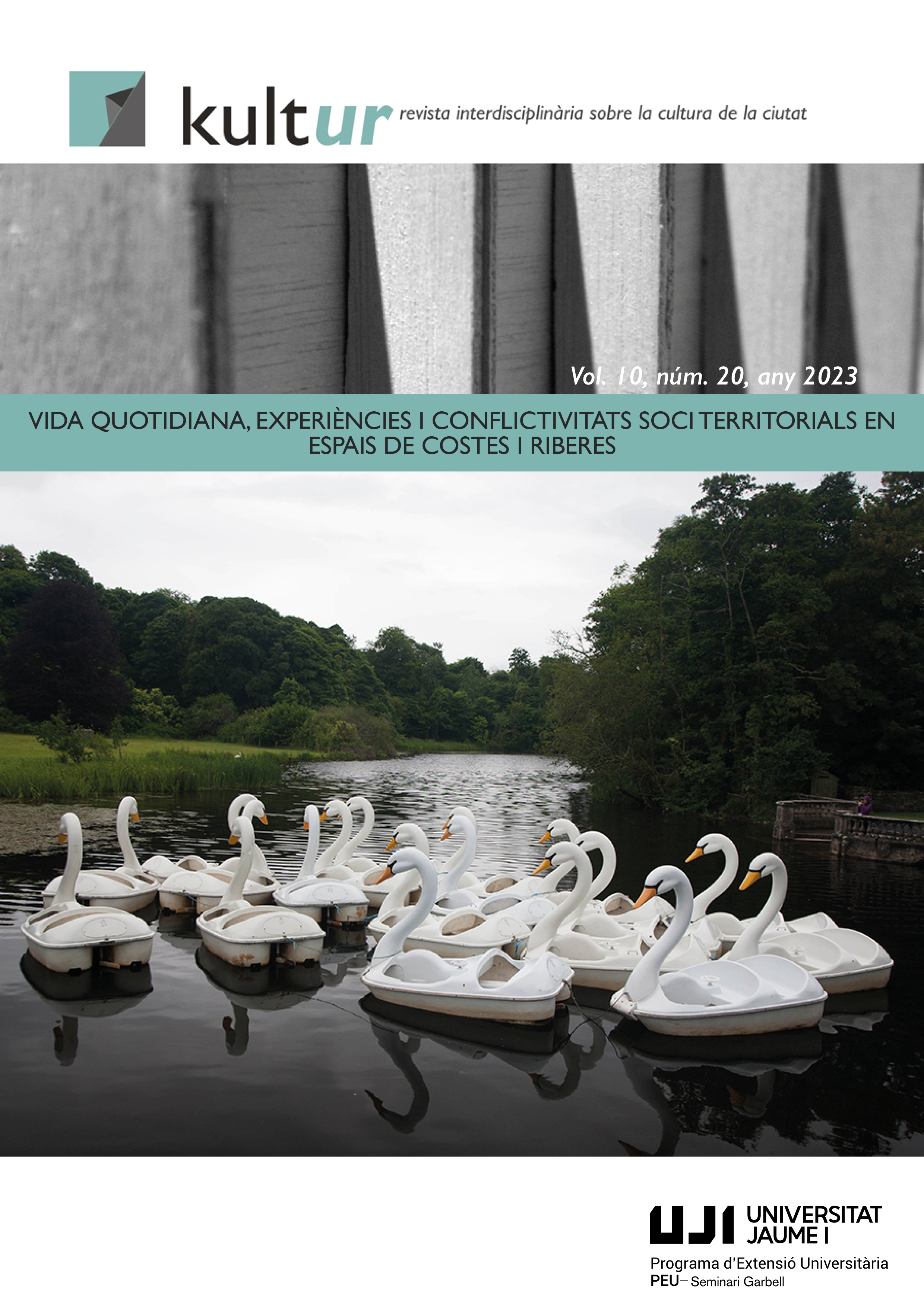Tensión Superficial. Nubes, olas, ruido y otras figuras mediales de la vigilancia marítima.
Main Article Content
Abstract
The land/sea interface offers a fertile space for reflecting on the material mediations that facilitate or hamper human life and agency. This article proposes an anthropological exploration of the technical mediations and ways of seeing that have transformed European waters into a securitised landscape, and its shores into an unreachable destination for racialised migrant subjects. The study deploys a methodology that combines ethnographic analysis of interviews and documents from the European Maritime Safety Agency (EMSA), a hub where maritime visuality is connected to the exercise of European territorial sovereignty, with concepts from visual studies and science and technology studies. After analysing how aesthetic and political dimensions are assembled in the visuality of maritime surveillance systems, the article concludes that while EMSA was created to reverse the logistical barriers that have turned the sea into a blind spot for European sovereignty, digital visuality introduces new spaces of invisibility that reproduce power relations in the maritime space.
Downloads
Article Details
All the contents of kult-ur journal are distributed under the Creative Commons Attribution-ShareAlike 4.0 International (CC BY-SA 4.0), unless otherwise indicated. Click to see basic information and the legal text of the license. The indication of this license CC BY-SA 4.0 must be expressly stated in this way when necessary.
Funding data
References
Alejandro Limpo es doctorando en Antropología en la Universidad de Southampton (RU) y becario de la Fundación Leverhulme Trust. Realizó la Licenciatura en Antropología en la Universidad Nacional de Córdoba (Argentina) y completo sus estudios de master en en el Instituto Universitario de Lisboa (Portugal). Se ha especializado en estudios CTS y filosofía de la tecnología dentro de la red de investigación Dedalus y trabajó como asistente de investigación en el proyecto Operational Images and Visual Culture: Media Archaeological Investigations (FAMU/Praga). Alejandro investiga el impacto cultural de la información en distintos campos del conocimiento, como la ingeniería, la seguridad, la visión y la ecología. Sus intereses actuales abarcan las culturas visuales de la teledetección, la modelización medioambiental y adaptación climática.



.png)